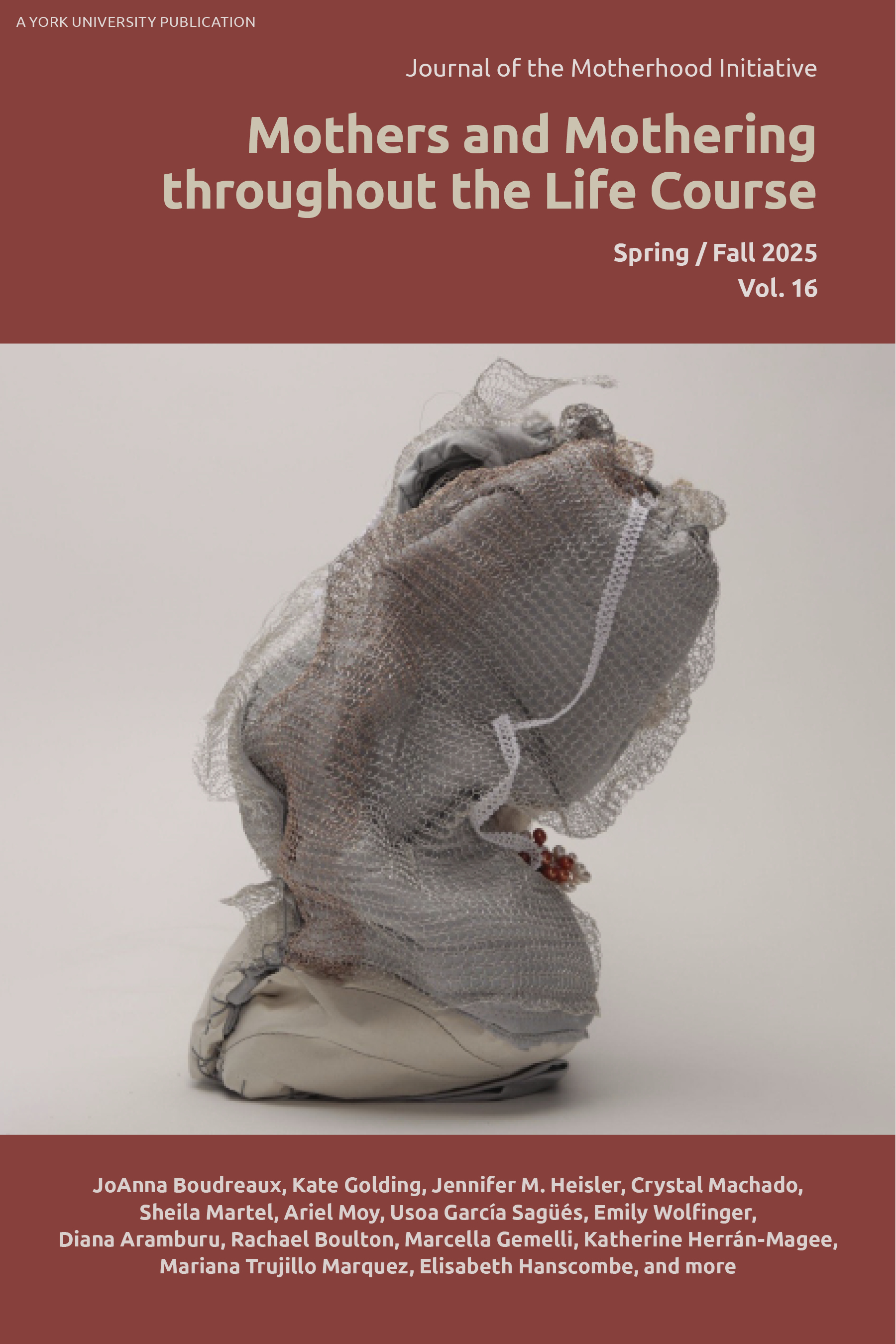The Motherwork Effect
The Role of Cognitive Labour in the Motherhood Penalty
Abstract
In 2023, economist Claudia Goldin was awarded the Nobel Prize for her analysis of the gender wage gap in the United States. Goldin demonstrates that most of today’s gender wage gap for American college graduates starts with marriage and/or children, which is referred to as the “parenthood effect.” This article argues that the “parenthood effect” is a “motherwork effect” (as defined by Andrea O’Reilly). The income inequality identified by Goldin is heavily gendered, substantially driven by the labour of motherwork, and affects mothers all over the world. To identify and understand the problem, we must first acknowledge that this issue is not just about women: it is also, and mostly, about mothers. This article uses a matricentric feminism lens to highlight this distinction and to propose a paradigm shift in gender equality policies, guided by Gooden’s “name, blame, claim framework.” It explores why and how motherhood accentuates gender inequality by analyzing a recent study that quantifies the amount of household labour that mothers of young children tend to be responsible for and proposes a solution to the unequal division of household labour: the Fair Play cards. Finally, this article uses concepts from multiple matricentric feminist scholars to both commend and critique the Fair Play approach. Although this approach is an important contribution towards the goals of matricentric feminism, it may inadvertently reinforce the institutions of motherhood and patriarchy because it does not reach far enough in advancing empowered mothering (O’Reilly). It concludes by offering a few recommendations as next steps.

Downloads
Published
How to Cite
Issue
Section
License
All intellectual property in relation to material included on this site belongs to the Motherhood Initiative for Research and Community Involvement (MIRCI). All material on this site is protected by Canadian and international copyright and other intellectual property laws. Users may not do anything which interferes with or breaches those laws or the intellectual property rights in the material. All materials on the Motherhood Initiative for Research and Community Involvement (MIRCI) are copyrighted and all rights are reserved. Any reproduction, modification, publication, transmission, transfer, sale, distribution, display or exploitation of the information, in any form or by any means, or its storage in a retrieval system, whether in whole or in part, without the express written permission of the Motherhood Initiative for Research and Community Involvement (MIRCI) is prohibited. Please contact us for permission to reproduce any of our materials. This site may include third party content which is subject to that third party's terms and conditions of use.

